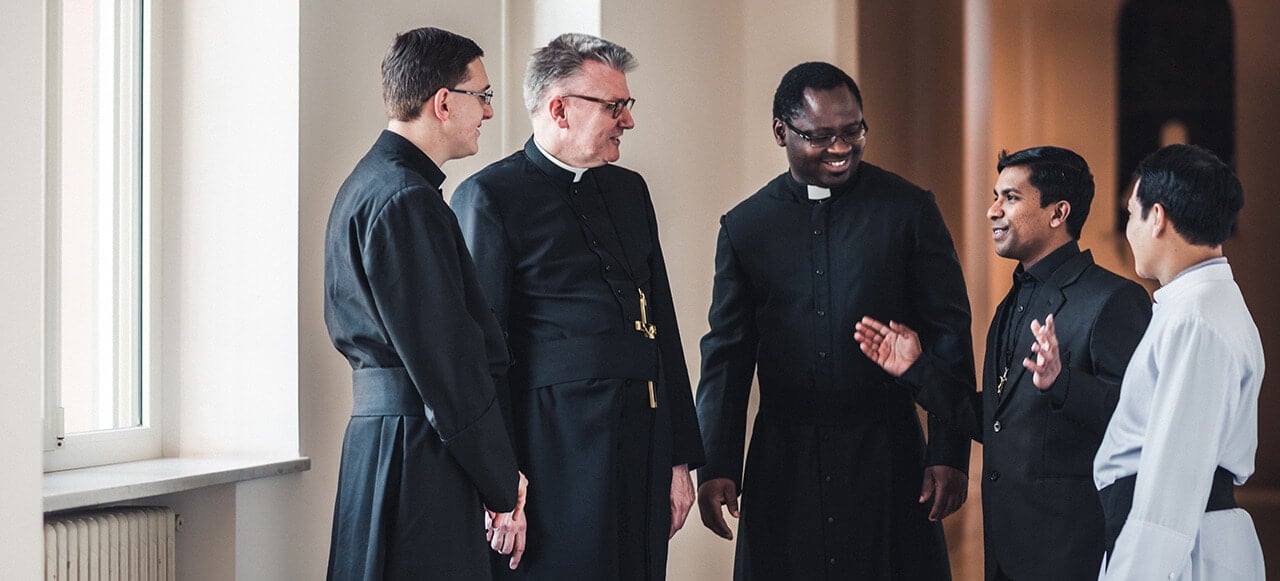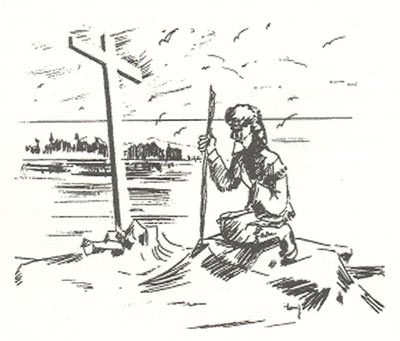The collaboration of lay people in the apostolate of the Oblates in the Canadian Northwest was priceless. White and Métis were very often invaluable helpers of the missionary in spreading the Gospel. They were essential guides in his dangerous voyages, his masters in the study of the Amerindian languages, sometimes even the rescuers of his life. Among these precursors of our current lay associate missionaries, one figure stands out above all the others. He is a Métis of the Dene nation who, after his conversion, won the recognition of all the missionaries of Athabaska-Mackenzie. He was an old man with long white beard, quite unusual for a Métis. He was known as “Patriarch Beaulieu”. His many and extraordinary feats could be the scenario for a captivating western entitled: From the Devil to God.
His mother, a Montagnais, raised him in paganism. His extraordinary strength was the reason why the Hudson Bay Company hired him to protect its providers of furs. Although he was a Métis, the Amerindians of the area had chosen him as their chief. All trembled before him. From time to time, in order to maintain the prestige of this fear, he would show up in an enemy camp. With a blow of his large knife he would cut open the side of the tent and, in a few seconds, stab a couple of victims, leaving the other spectators numb with terror. He was particularly angry with the tribe of the Plats-Côtés-de-Chiens, because they had killed his brother.
Of God and religion Beaulieu knew nothing. How did he become a believer and lay apostle? Let’s let Fr. Duchaussois tell us: “One spring, a young Canadian Frenchman from Montreal named Dubreuil arrived at Fort Resolution and was placed under Beaulieu. Dubreuil was a kind, charitable, person, always respectful of his masters. That struck Beaulieu. He watched him. Surprised to see him kneel morning and evenin
g near his cot and intrigued by the large sign of cross which began and finished this ceremony, Beaulieu asked about it. Dubreuil told him that he was praying to God and the Blessed Virgin Mary. But, could I also know God and the Blessed Virgin, and like them, and pray to them? he asked. Dubreuil then started to instruct his impetuous catechumen. It was not long before he discovered a good heart, avid of truth under the hard appearances of this braggart.
Meanwhile, a missionary arrived at Portage La Loche. He is the man of prayer, said Dubreuil, go meet him. He will tell you what to do to serve God and to save your soul. Beaulieu prepared a big bark canoe, put his seven wives and children in it and left for the Portage. His conversion was as fast as it was total. The rest of his life was devoted to continuous penance and the apostolate. He made himself the protector, servant and often the provider for the missionaries who passed through the area. Nothing was too good nor too expensive for the Oblate, the man of prayer, who was his guest. He was the sacristan, the cook, the private teacher and commentator of their sermons. Bishop Vital Grandin himself went to improve his knowledge of the Montagnais language with Beaulieu. At his request, the venerable prelate blessed a large cross for him above the beach. Beaulieu made a daily pilgrimage to this cross until his death. Even on the coldest days he could be seen kneeling, bare-headed, reciting his beads for the dead of the tribe, his family, and all those to whom he had caused some harm. He cried the every day over his past faults. Oh! that I had known the good God earlier, he would say. How I would have loved Him! Oh, my God, forgive me my sins. Beaulieu was more than a hundred years old when he died in the peace of the Lord.
André DORVAL, OMI

